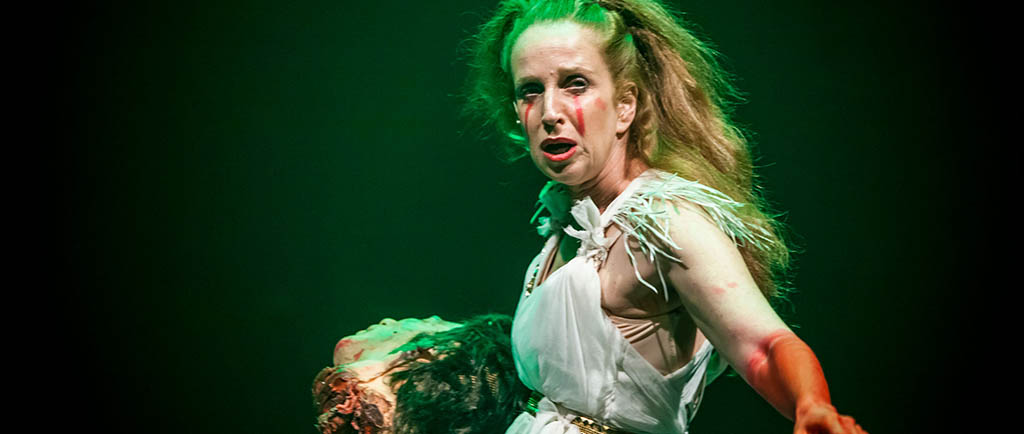

This raises an important question: how easy is it to read Euripides’ play as a (proto-)feminist text? Certainly, academic feminism has rejected this possibility: in a recent lecture, Judith Butler unequivocally stated the play is not about women’s liberation.

Unsurprisingly, Brady’s Here She Comes picks up and expands that thread. In Before They Told You What Are one of the focal points became Agave’s journey from city to mountain, charting an attempt to seek liberation from oppression and the complications this entailed. In keeping with the company’s creative ethos, both engagements with The Bacchae were approached from an overtly feminist perspective, thinking through the ways in which the play represents women and how it might be configured to speak to 21 st century feminist concerns. Brady had played, amongst other characters, Agave, and it was Agave that seemed to strike a chord with her.

Written and performed solo by SJ Brady, the piece in fact originated as a response to By Jove’s 2014 adaptation of The Bacchae, entitled Before They Told You What You Are. While Agave only appears in the final episode of Euripides’ play, Here She Comes reconfigures events to tell the story from her perspective. The scene is one of the most brutal and haunting in classical tragedy. The tragic catch is that Agave thinks she has killed a young lion – that is until she ‘comes to her senses’ and realises what she has done. In what is likely a change made by Euripides to the myth he was adapting, Agave returns to the stage at the end of the play to announce that when Pentheus was tricked into spying on the mountain women by Dionysus, she led the charge to attack and destroy the intruder. Amongst those women is Pentheus’ mother Agave. In that play, Dionysus inspires madness in all the women of Thebes, sending them up to nearby Mount Cithaeron to worship him in forested isolation this comes as a punishment against the city’s mortal king Pentheus for disavowing Dionysus’s divinity.

The next show in By Jove’s Season of Violent Women, Here She Comes, draws its inspiration from one of Euripides’ final tragedies, The Bacchae.


 0 kommentar(er)
0 kommentar(er)
